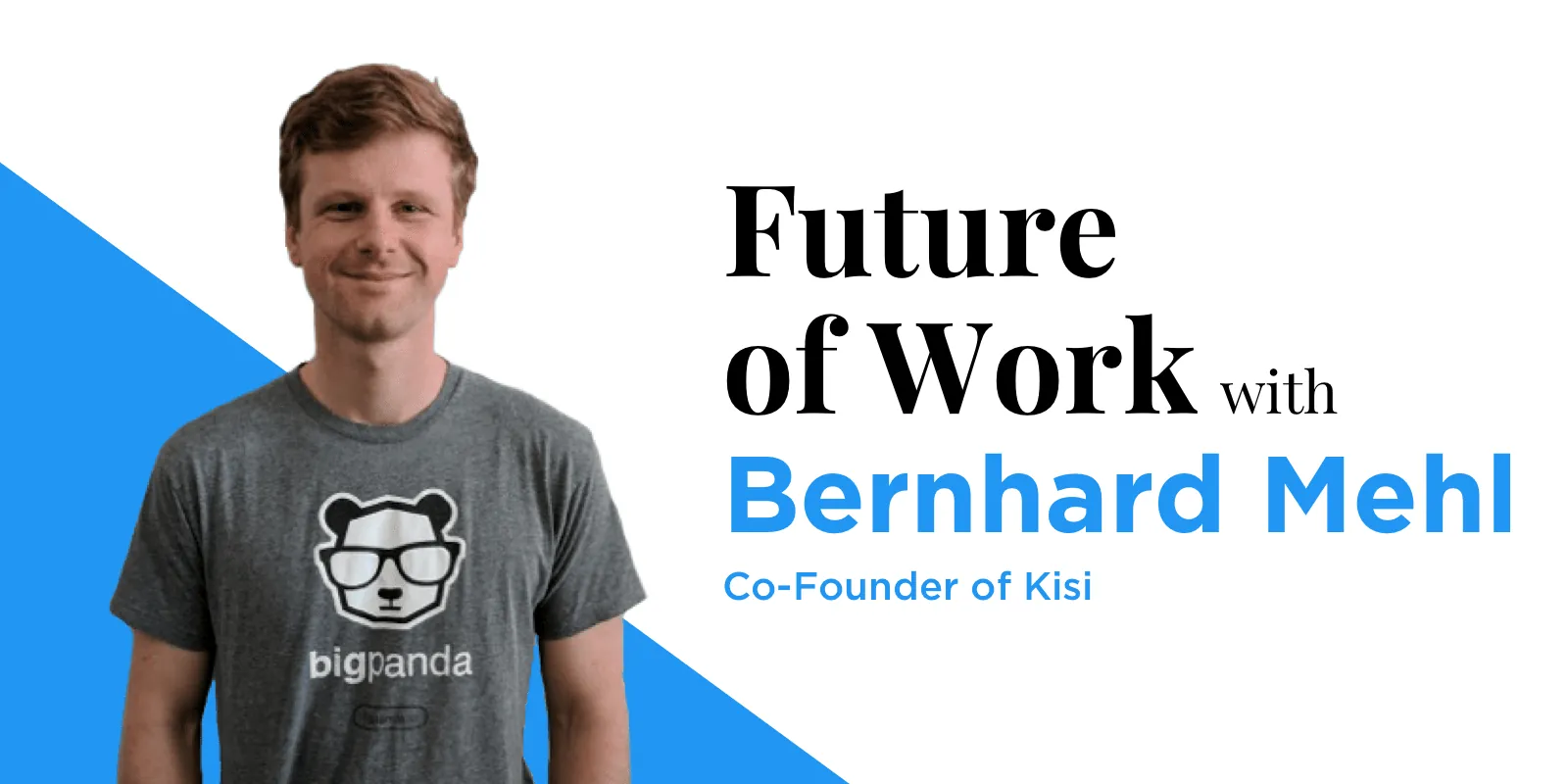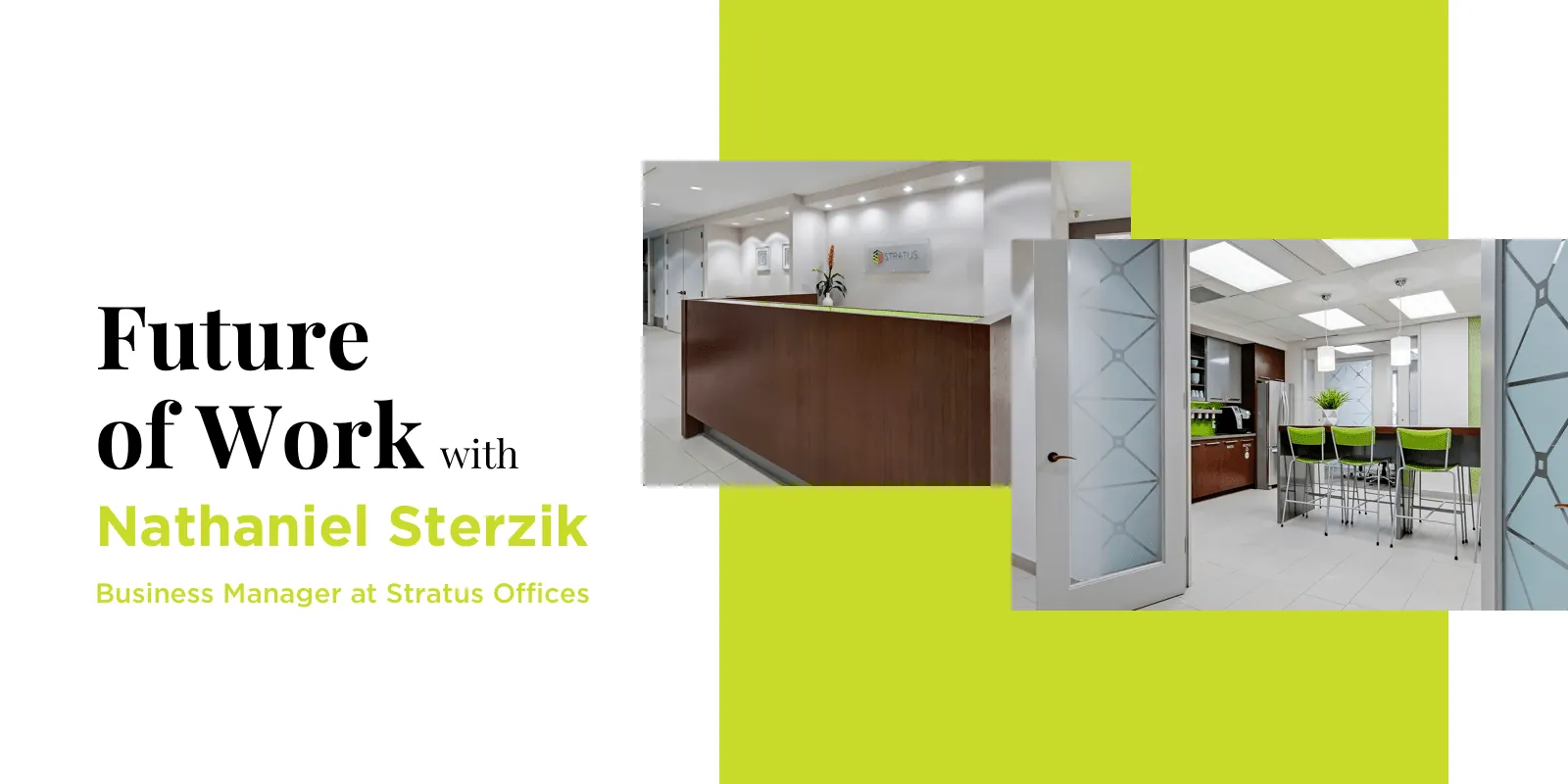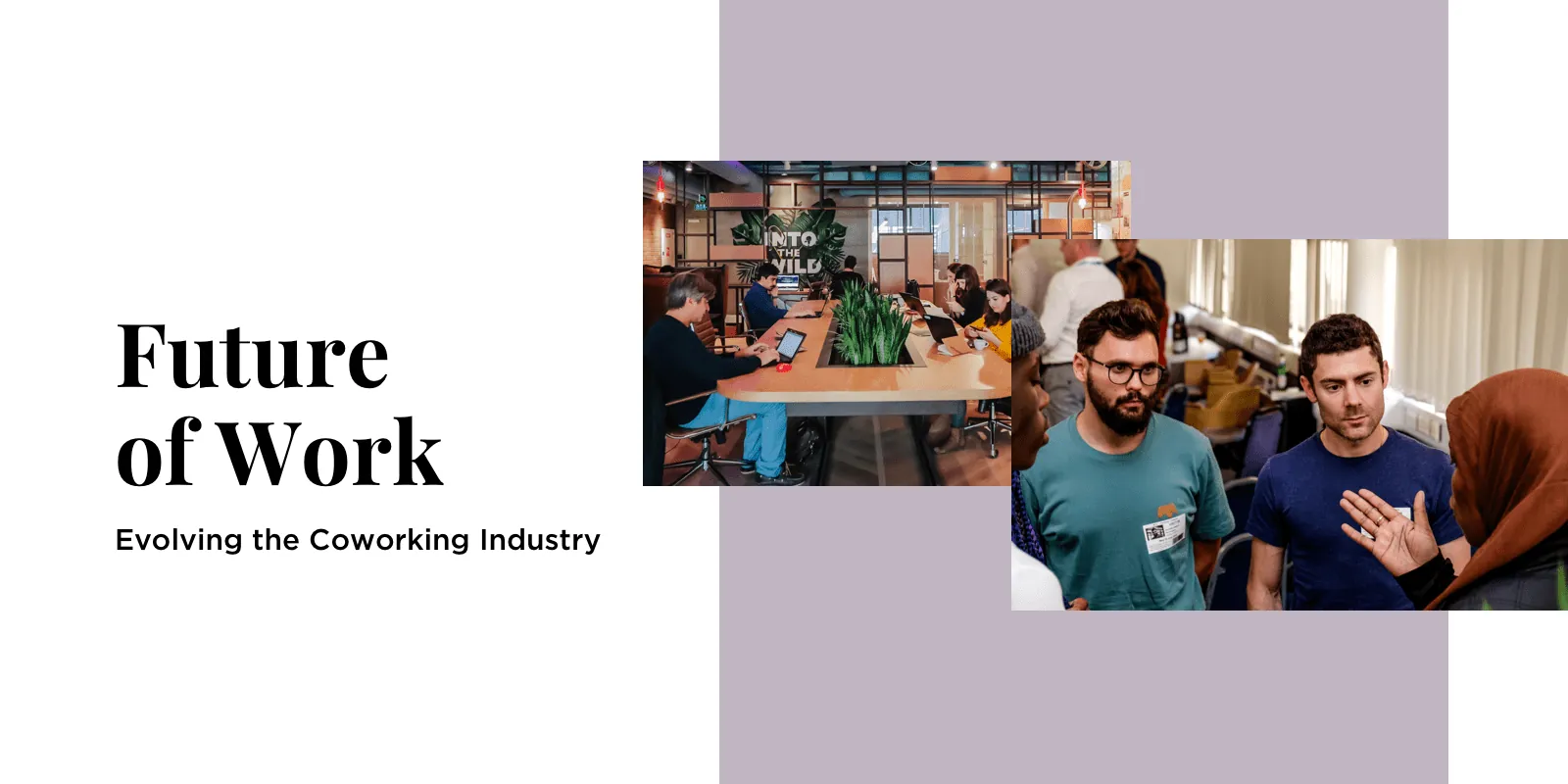
These days, innovation and technology go hand in hand. To operate an innovative workplace, employing a variety of technology tools can help create a seamless experience for the individuals who work there; however, as you add more pieces of technology to your space it becomes increasingly difficult to keep your workspace as ‘human-friendly’ as possible.
So how can you remain innovative without sacrificing the experience? We spoke with Bernhard Mehl, Co-founder of keyless access control system Kisi, to hear more about how their team works to bridge this gap with a technology solution that’s delightful for both the space operators and the individuals who work there. Without further ado, here’s Bernhard’s ‘future of work’ in his own words.
An idea born out of inconveniences
We got started on building this kind of technology because our team worked in a shared workspace ourselves. Since it wasn’t our own office, we experienced all kinds of inconveniences. We didn’t have keys to unlock the building, the doorbell was ringing all the time, and people were always coming in and out while no one really knew who they were or whether they should be there.
We looked around at our office and we wondered–what if these problems could be solved by building an app? As in, could we create something that would allow people to manage their own space access with the phone in their pocket?

And now, that’s pretty much what we do. Kisi is a modern access control system. And when I say the word ‘modern,’ that means three things: it’s easy to install, easy to manage, and easy to securely use. With Kisi, we provide this technology to all kinds of companies and shared workspaces facing the same problems that we experienced ourselves.
Growing up alongside the coworking industry
There have been a lot of surprises along the way while we’ve built this company. In the beginning, being based in Brooklyn we assumed that huge landlords dealing New York City real estate would be our biggest customers. Turns out, we were wrong.

Because what we’ve found is that real estate as a whole is still quite old school. Much of the real estate business, up until recently, has remained quite offline-focused. Initially, we were a little bit disappointed to discover this. And of course at this point, New York only had a handful of coworking spaces. Coworking itself was still quite a new concept. But one of our first ever customers was the owner of a coworking space. At that time, we didn’t really take the industry seriously enough to consider it its own category of our business, let alone a primary source of revenue for us. But now, coworking and these shared office spaces have become a cornerstone of our business model.
It’s been one of the most surprising things for me, to see how we went from that first almost random encounter to today where the whole coworking industry as a whole has been scaling up alongside Kisi, in a way. That’s definitely something we didn’t expect.
Updating a broken system
And really, coworking’s rise makes sense. Traditional offices are oftentimes still stuck in the past. The old access control systems (physical keys or even FOBs) aren’t optimized. The setup is awkward and not human-friendly.
But now, everyone from landlords to space operators see their buildings in four dimensions. These days they’re not only considering the physical space they have, but the digital layer that exists within the physical spaces, too. So sometimes, we refer to Kisi as the AWS for real estate.

If you don’t know, AWS is basically the Amazon-provided server hosting that allows a business to scale up very quickly, but also allows you to start small. And it stays scalable; even incredibly large companies use AWS. We see something similar happening in real estate right now. Typically, companies start with a small pilot to test a hypothesis. They experiment with the model, then they start to grow it over time and make its portfolio.
Ultimately, keyless access control is essential to support the real estate industry’s vision of realistically transforming real estate into an on-demand service. The managers of these spaces want to allow people the flexibility to come and go as they please.

Mobile-first workplace is the future
We’re very firm believers that the future of work is a mobile-first workplace. One of the things that makes Optix unique compared to the other coworking management softwares on the market is this idea of being a mobile-first platform, much the same as Kisi. When these types of technologies are available on a phone, users aren’t tied to their computers anymore. They’re not tethered to a physical space since they can access the tools they need anytime in their pocket–at a desk, on the train, or on the way to a meeting. Ultimately, there’s two prongs as to why we see a mobile-first workplace as the way of the future: the end user’s experience and the security it provides the space operators.
To understand why having a mobile-first workplace experience is so important for the end user, consider a person arriving to the office for a day of work. They wake up, grab a coffee, catch a ride into downtown. Maybe they use ApplePay or their Starbucks Rewards App to purchase their coffee so they don’t even need to fumble for their credit card. They keep their phone out after they pay to grab an Uber to get them where they need to go. The truth is that people are already living out their lives on their mobile devices. Transportation is already on-demand, food and drinks are on-demand. So then if they enter their office and the workplace totally breaks that flow, everything stops. It halts that seamless, on-demand experience. And that’s why I think matching this ‘on-demand’ expectation that already exists in other parts of our life with the technology available within the workplace is a very big, important topic that’s very much front and center when you think about where the future of work is headed. People want seamless. They want on-demand everything, even office space.

However it’s also important not to lose sight of the fact that access control hinges on creating a secure system. These space operators need to be able to ensure the right people are accessing their buildings. But in so many ways, turning the phone into a FOB provides a much more secure system than a key or a digital keycard can ever provide. Because at the end of the day, you might be willing to pass your keycard over to a friend, but would you give them your phone? A keycard doesn’t have any purpose to you other than letting you into a building, but your phone—that’s precious. So ultimately, the idea of using your phone to let you into a building is a win/win overall.
Optimizing the relationships between your various technologies
At the end of the day, most of our clients want to use a variety of pieces of technology, but only if those pieces of technology can work together to form one integrated system. Many of the companies that reach out to us looking to get Kisi installed in their space already have certain pieces of technology in place. Any one of these tools is fine on its own…but in combination with other types of software, they begin to become a part of a much more powerful system.
Consider something even as simple as the doorbell. In general, workspaces don’t want the doorbell to alert the entire space that someone’s arrived; that would be extremely disruptive. When someone rings the doorbell, they want the alert that someone’s at the door to go straight to the phone of their receptionist or office manager.
So now you can create an integrated system between the doorbell, an indoor security camera, a doorbell alert technology, and your keyless access control system. Now, your receptionist gets an alert when someone’s arrived and is even able to see the visitor, no matter whether they’re at their desk or grabbing a cup of coffee in the kitchen, all without disrupting others in the space. Now, you’ve set up a robust visitor system.
Consider the entire workplace experience
And that’s super important for us, to ensure we’re helping these space operators consider the whole access control experience. How can you use technology to make the humans’ experience of the space more seamless and delightful? From the visitor who has a seamless check-in to the members of the space who don’t have their work interrupted by a doorbell every five minutes, to the receptionist who can know someone’s at the door even if they’re not sitting at their desk with a visual on the door itself. And that, in a nutshell, is the power of equipping your workspace with the right technology.
Bernhard Mehl, Co-founder of Kisi, as told to Mara Savina Falstein exclusively for the Optix blog.
The ‘Future of Work’ series shares insights from thought leaders who are on a mission to drive the future of work forward. We speak with members of our diverse network of entrepreneurs, journalists, flexible workplace operators and others, then distill their insights into a 5-15 minute read you can enjoy while sipping your cup of coffee and preparing to start your day.



